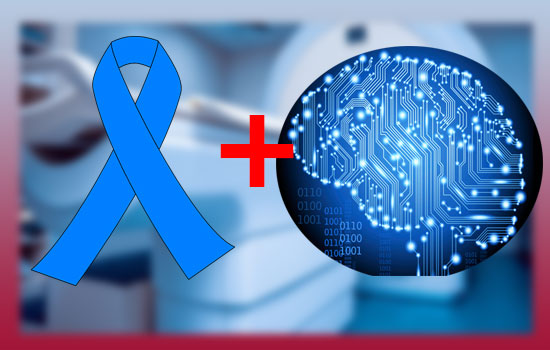
According to the research published in the journal IEEE Transactions on Medical Imaging, a newly developed Artificial Intelligence based trained neural network was able to detect prostate cancer at an accuracy of 80.5 percent. The newly developed artificial intelligence system is named FocalNet which is trained to help doctors in better diagnose prostate cancer.
The detailed information about this research was published in the IEEE’s International Symposium on Biomedical Imaging in Italy, this month. At this time this newly developed AI model is for research purposes only and not for production use. It is expected that the model will be retrained and increase the accuracy to meet production grade requirements.
This research is to help radiologist in improving their ability to diagnose prostate cancer with high accuracy.
This system can detect prostate cancer with an accuracy of 80.5 percent while UCLA radiologists are detecting it at an accuracy of 83.9 per cent.
The FocalNet is an Artificial Neural network which is pre-trained with the MRI scans to detect prostate cancer. This AI Neural Network can take magnetic resonance imaging (MRI) scans as input and then detect prostate cancer by scanning through the input image. The FocalNet accuracy matches the accuracy of experienced radiologists.
The FocalNet is an artificial neural network designed and trained for detecting prostate cancer. According to researchers, including Ruiming Cao from University of California, Los Angeles, the FocalNet neural network has more than a million trainable variables. This model has been trained with the MRI scans.
This neural network has feed with the MRI scans; system learned to asses and classifies tumours in a consistent way. Results were then compared with the actual pathology specimen and result was very good.
The result generated by this system was then compared by the reports generated by UCLA radiologists. The UCLA radiologist’s team are in this field and posses more than 10 years of experience.
According the research report AI system was 80.5 per cent accurate in reading MRI’s as compared to 83.9 per cent accuracy of CLA radiologists.
The learning curve for a radiologist is very high and one requires to practicing on thousands of scans to learn accurately determine the nature of prostate tumours. After practicing on thousands of MRI scans radiologists can detect and assess the aggressiveness of malignant prostate tumours. It requires a lot of learning and practice to correctly determine if a tumour is cancerous or benign.
This research suggests that the well trained artificial intelligence system can help doctors in quickly determine the nature of tumour fast and can give guidance to less-experience radiologists.
These days many research organizations and companies are working on the cancer research with the help of Artificial Intelligence. This research will provide hope to the future research in this field.
According to WHO, Cancer is the leading cause of death worldwide due to which over 9.6 million people died in 2018. In 2018 1.28 million cases of prostate cancer has been reported worldwide.
--Deepak Kumar
|
|
Deepak Kumar is Science Graduate from Delhi University with more than 18 years of experience in Technical field. Currently his interest lies in researching for Media and Journalism field. He has years of rich experience in various technological fields. With a background in Science and Media field, Deepak has been offering services in the media houses and technical research. He has worked as director and chief in many companies. As a technical writer, editor and reviewer, he is offering services to many research organizations, media houses and online educational portals.
Address: D-16/116, Sector-3, Rohini Delhi - 110085 India.
Email: deepak@newstrackindia.com
Phone: +91 9313063554


Comments: